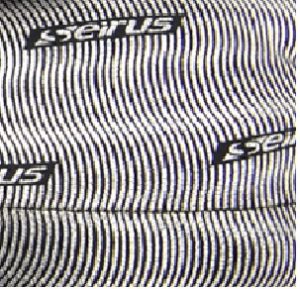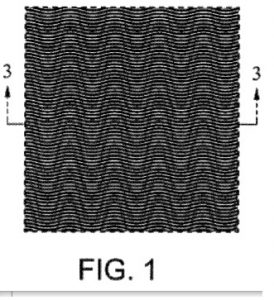The United States Court of Appeals for the Federal Circuit issued an opinion as to Summary Judgment in the case of Columbia Sportswear North America, Inc. (“Columbia”), an Oregon Corporation, versus Seirus Innovative Accessories, Inc. (“Seirus”), a Utah Corporation. This appeal by  Columbia came after a jury trial in the U.S. District Court for the Southern District of California found that claims 2 and 23 of U.S. Patent 8,453,270 (the “’270 Patent”) are invalid as anticipated and obvious. Seirus cross-appealed from the U.S. District Court for the District of Oregon’s grant of summary judgment that it infringes U.S. Patent D657,093 (the “’093 Patent”) and from the entry of the jury’s damages award. The Court of Appeals found claims 2 and 23 of the ‘270 Patent are invalid and that the Court for the District of Oregon erred in granting summary judgment for infringement of the ‘093 Patent.
Columbia came after a jury trial in the U.S. District Court for the Southern District of California found that claims 2 and 23 of U.S. Patent 8,453,270 (the “’270 Patent”) are invalid as anticipated and obvious. Seirus cross-appealed from the U.S. District Court for the District of Oregon’s grant of summary judgment that it infringes U.S. Patent D657,093 (the “’093 Patent”) and from the entry of the jury’s damages award. The Court of Appeals found claims 2 and 23 of the ‘270 Patent are invalid and that the Court for the District of Oregon erred in granting summary judgment for infringement of the ‘093 Patent.
Columbia originally filed suit in the District of Oregon on January 12, 2015 claiming that Seirus infringed both the ‘270 and ‘093 Patents. Seirus moved to transfer the case to the Southern District of California, but that motion was denied. The district court then “granted summary judgment that Seirus’s HeatWave products infringe the ‘093 patent” stating that “the difference in wave pattern, orientation, and the presence of Seirus’s logo” were characterized as “minor differences.” Seirus moved to transfer the case to the Southern District of California for a second time, two years after its first motion, in light of the decision in TC Heartland LLC v. Kraft Foods Grp. Brans LLC, 137 S. Ct. 1514 (2017). Due to the intervening case law, the District of Oregon transferred the remainder of the claims to the Southern District of California.
A jury trial w as held in the Southern District of California and claims 2 and 3 of the ‘270 Patent were found to be invalid as anticipated and obvious. The jury also awarded Columbia $3,018,174 in damages for non-willful infringement of the ‘093 Patent. Both Parties “filed post-trial motions for judgment as a matter of law and for a new trial, but the court summarily denied them in a two-page opinion.” Subsequently, the Parties each filed notices of appeal.
as held in the Southern District of California and claims 2 and 3 of the ‘270 Patent were found to be invalid as anticipated and obvious. The jury also awarded Columbia $3,018,174 in damages for non-willful infringement of the ‘093 Patent. Both Parties “filed post-trial motions for judgment as a matter of law and for a new trial, but the court summarily denied them in a two-page opinion.” Subsequently, the Parties each filed notices of appeal.
The court’s denial of the motions for judgment as a matter of law is reviewed by the substantial evidence standard. “A jury’s verdict must be upheld if supported by substantial evidence.” OTR Wheel Eng’g, Inc. v. W. Worldwide Servs. Inc., 897 F.3d 1008, 1015 (9th Cir. 2018) (citing Unicolors, Inc. v. Urban Outfitters, Inc., 853 F.3d 980, 984 (9th Cir. 2017). The court’s denial of a motion for a new trial is reviewed for an abuse of discretion. Molski v. M.J. Cable, Inc., 481 F.3d 724, 728 (9th Cir. 2007). The granting of a new trial may only be done “if the verdict is contrary to the clear weight of the evidence, is based upon false or perjurious evidence, or to prevent a miscarriage of justice.” Passantino v. Johnson & Johnson Consumer Prods., Inc., 212 F.3d 493, 510 n.15 (9th Cir. 2000).
Columbia raised two challenges on appeal to the jury’s finding of obviousness: (1) that the prior art failed to disclose certain claim limitations, and (2) that the expert testimony from Seirus’s expert was deficient. The Court of Appeals held the evidence was “adequate to support the jury’s conclusion” of obviousness based on the prior art. Further, the Court of Appeals held expert testimony evidence was not required for the legal determination of obviousness in this case. Therefore, the jury’s verdict finding the ‘270 Patent obvious was supported by substantial evidence and the judgment as a matter of law was properly denied.
In the alternative, Columbia argued it should be granted a new trial for two reasons: (1) the court declined Columbia’s proposed jury instruction on anticipatory ranges and (2) Seirus’s expert falsely testified the prior art taught an embodiment with 36% coverage. First, the Court of Appeals held that it did not need to “decide whether the district court abused its discretion in declining to instruct the jury on anticipatory ranges because the jury also found the claims obvious under other jury instructions unchallenged by Columbia on appeal.” Second, the Court of Appeals found that the representations made by the expert could have been easily verified by the jury as the prior art was a part of the record. Further, Columbia had an opportunity to cross-examine the expert on his incorrect understanding of the prior art. Therefore, neither the non-use of the proposed jury instruction nor the expert’s incorrect testimony warranted a new trial.
The granting of summary judgment against Seirus was reviewed by the Court of Appeals de novo. Seirus argued on appeal that there were several factual disputes regarding the infringement of the ‘093 Patent including the identity of the ordinary observer, the “court’s evaluation of the prior art as improper resolution of disputed fact issues,” and the court ignoring the repeating Seirus logo boxes within its design. The Court of Appeals held the granting of summary judgment was improper for two reasons: “(1) the court improperly declined to consider the effect of Seirus’s logo in its infringement analysis and (2) the court resolved a series of disputed fact issues, in some instances relying on an incorrect standard that should have been tried to a jury.”
Columbia finally challenged the transfer of venue to the Southern District of California and requested that if any part of the case was remanded that it be transferred back to the District of Oregon. The Court of Appeals held that the district court did not abuse its discretion in excusing Seirus’s waiver of its venue defense and therefore the district court does not have to retransfer the case back to Oregon. The case was affirmed in part, reversed, in part, and remanded for further proceedings concerning the ‘093 Patent in the Southern District of California with costs awarded to Seirus.
 Indiana Intellectual Property Law News
Indiana Intellectual Property Law News

